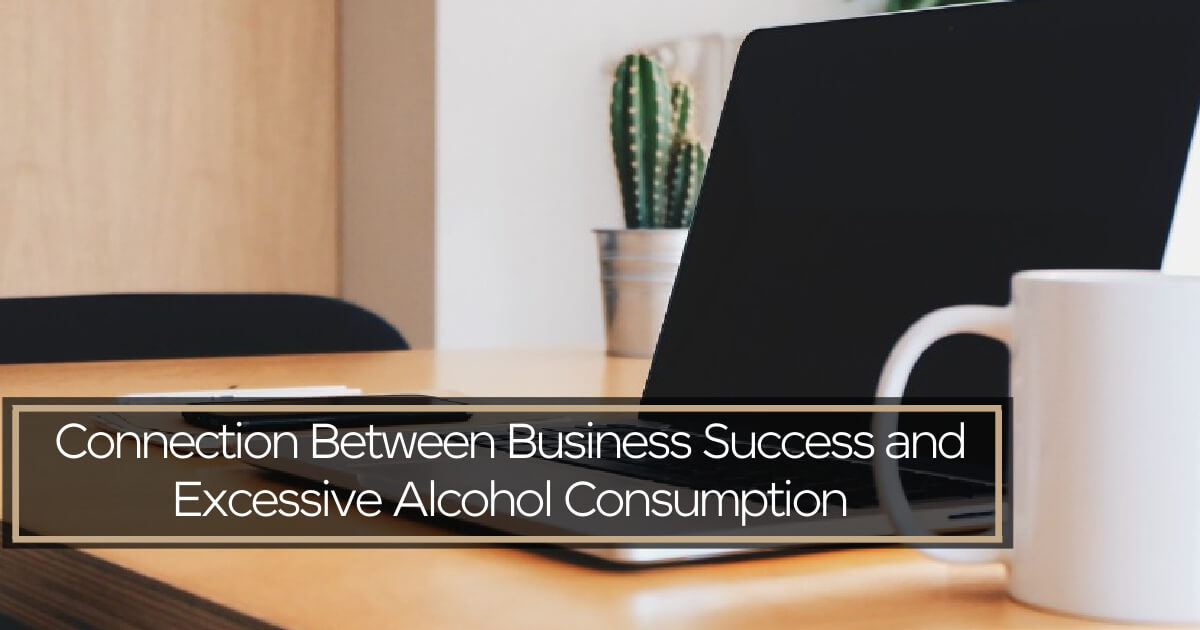Success in the business world often brings status, money, and recognition. Unfortunately, added pressure also often comes with it as well, which then can result in alcohol use and more stress since long hours, lofty expectations, and constant decision making can wear people down with alcohol becoming a fast escape for some. Maybe, alcohol becomes a reward after closing a deal or becomes a secret habit before bed. Somewhere along the way, the line between usual and harmful drinking habits get blurry. Knowing how much alcohol is excessive and spotting the signs of alcohol dependence early on could save more than just a career.
How Success Pressure Impacts Drinking Habits
Immense success doesn’t come without stress. High performers may keep pushing, even when they’re spent. Sleep patterns become shorter as pressure climbs higher. An alcoholic drink may feel like relief, and one drink often becomes three. Soon, the drinking habit starts taking the place of healthier stress outlets. Excessive alcohol consumption doesn’t always look like trouble at first. Stress and alcohol often walk together. People ask, does alcohol relieve stress and anxiety? Maybe a little, but the effects commonly fade fast. Over time, alcohol adds to anxiety instead of fixing it. Excessive drinking can become a daily pattern, especially when it feels like the only way to slow down the mind.
Alcohol and High-Performing Business Leaders
Business culture seems to normalize drinking. Deals are done over cocktails, and promotions are often toasted. Successful and wealthy people who drink alcohol in elite circles aren’t particularly anything new. The drinking habit often blends into the routine. Warning signs of alcohol dependence can be overlooked since success can mask the symptoms. Missed meetings, cloudy thinking, and squandered family time may not seem all that serious at first. But these can be the early signs of alcohol dependence. Some successful and/or wealthy people who drink excessively have shared stories of how alcohol quietly crept in. Many successful people assume that their position protects them from addiction, but it doesn’t.
Why Entrepreneurs Are at Higher Risk
Entrepreneurs don’t have safety nets. They often face long hours, unstable income, and high stakes, on a daily basis. Many work alone in their decision-making with pressures pushing people toward coping habits such as drinking. The signs of alcohol dependency build slowly. Drinking alcohol excessively may start with weekend blowouts and grow into weekday routines with very few being close enough to notice and to call the behavior out. Not every successful person drinks alcohol, though. Successful people who don’t drink alcohol often credit their clear thinking, focus, and energy as key reasons for their success. Do those who are successful drink alcohol more than others? Of course, some do, and some don’t have a drinking habit. The risk seems to lie more in the pressure they face and how they choose to manage stress and alcohol.
Signs of Alcohol Dependence in Professionals
Small changes commonly reveal bigger problems. The signs and symptoms of alcohol dependence aren’t always loud. For example, regular drinking habits will usually lead to additional alcohol tolerance, and not everyone is honest about it. Some will even create more excuses to drink alone since there will then be nobody to witness the alcohol use. These are common warning signs of alcohol dependence. Slipping deadlines, mood swings, and avoiding social plans that happen to be ‘dry’ are all possible signs of alcohol dependency. Knowing what excessive alcohol consumption is, may help detect the shift early on. Ignoring the dependency issue typically doesn’t end well. Understanding the signs of alcohol dependence may help protect a person’s health, family, and business.
Healthy Coping Alternatives to Alcohol
Running or managing a business often comes with a lot of stress and drinking doesn’t need to be the answer for dealing with stressful situations. Some of the most successful leaders today speak openly about quitting alcohol and feeling sharper because of it. Without using alcohol as a crutch, sleep has improved, focus has increased, and decision-making has become easier. Billionaires who drink alcohol do exist, but so do plenty who don’t drink. Choosing not to drink is a strength, not a weakness. Meditation, workouts, and mentoring can help fill the space that alcohol once held. Success and sobriety don’t have to clash. Spotting early signs of alcohol dependence and building new routines that lead to a healthier, longer-lasting version of success are imperative to breaking the hold of alcohol dependency.








